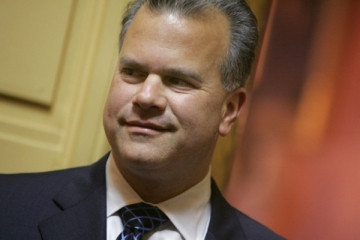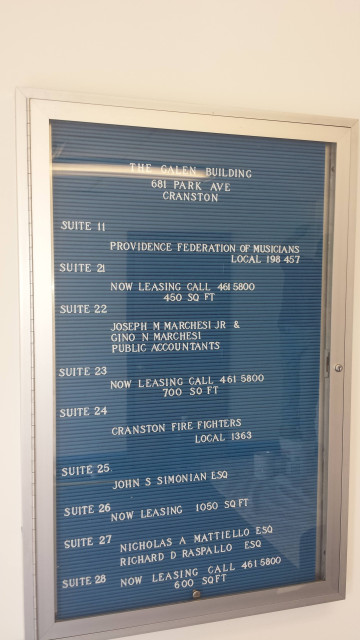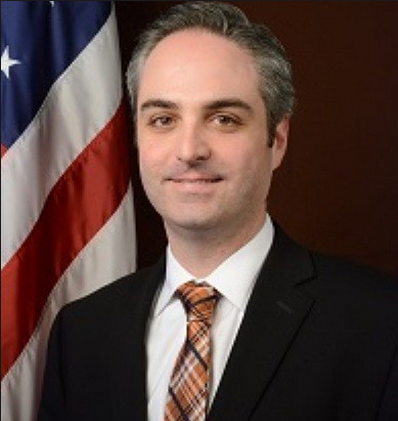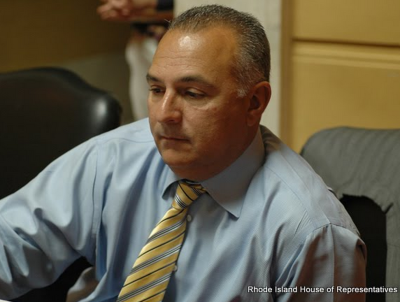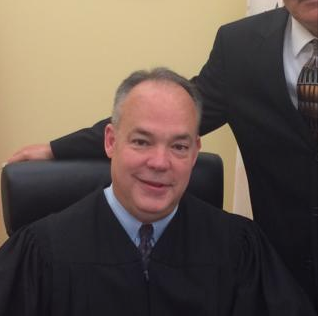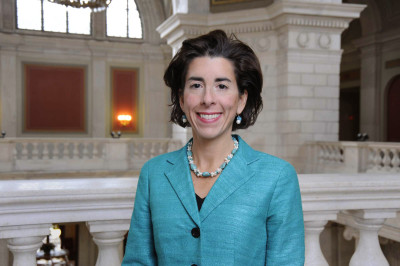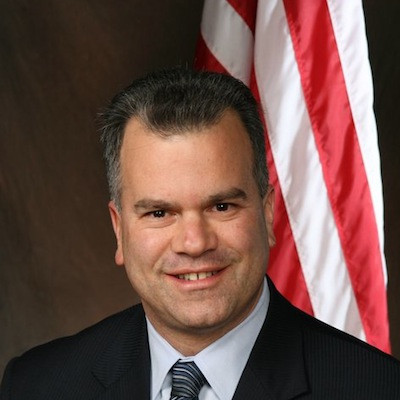Speaker Mattiello is Fire Unions Landlord
Saturday, May 02, 2015
House Speaker Nicholas Mattiello, who most political observers believe to be the most powerful person in Rhode Island state government, co-owns a building with his brother that rents office space to the Cranston Firefighters Union Local 1633. The Speaker refused to disclose how much is paid in rent.
Mattiello tells GoLocalProv that there is nothing improper about the relationship and that he keeps his business interests and his votes in the state legislature separate.
Mattiello: No Conflict
GET THE LATEST BREAKING NEWS HERE -- SIGN UP FOR GOLOCAL FREE DAILY EBLASTMattiello issued a statement to the Rhode Island media after GoLocalProv requested answers to a series of questions regarding the Speaker’s ownership of the building.
For his part, Mattiello maintains that the business relationship he maintains with the Cranston Firefighters Union Local 1633 is completely separate from his votes in the state legislature. Mattiello wouldn’t say how much rent he and his brother receive from the union, other than that it is a “fair-market” value. Mattiello pointed out that he inherited the building several years ago, and the fire fighters were tenants of the property for roughly 5 years before he even became a State Representative, since 2002.
But some government watchdog groups and good government advocates question whether the Speaker can or should police himself.
“We are a part-time legislature and many of us are active in the business world. I am not going to give up a tenant because I was elected to the General Assembly. With the class exception, there is no conflict of interest in the rare votes that impact firefighters. In fact, the union leaders were extremely upset with me when I co-sponsored the landmark pension bill in 2011. But they understood that my business relationship as a landlord and my votes in the General Assembly are completely separate,” said Mattiello in a statement in response to a series of GoLocal’s questions.
Paul Valletta, the head of the Cranston Fire Fighters Union Local 1363, who is also the Rhode Island Association of Fire Fighters lobbyist at the statehouse, agreed with Mattiello’s assessment that the House of Representatives certainly hasn’t gone out of its way to help fire departments since he’s been Speaker.
“It sure didn’t give me any leverage with the biggest issue that will affect my people the most over the next decades to come—the pension issue,” said Valletta, noting that Mattiello helped spearhead the issue.
Further, Valletta said he hasn’t had much luck getting the bills he wanted passed over the last few years.
Should The Ethics Commission Decide?
In any event, the class exemption Mattiello cites that allows him to vote on issues impacting fire departments, despite his business arrangement with one union, is a relatively vague concept that allows legislators and other lawmakers and policymakers in Rhode Island (council members, school committee members) to vote on issues that have an impact on their own finances so long as the decision benefits a large enough group or “class” of people.
For instance, it allows school teacher to serve on a school committee (as long as it’s not the same district they teach in) and vote for a teacher contract for that district, despite the fact that they are a teacher somewhere else in Rhode Island, because it impacts a large enough class of people.
However, a number of Rhode Island reformers and good government advocates said that the Mattiello’s argument is questionable at best.
Phil West, who served as Common Cause’s Executive Director for 18 years up until 2006, and is the author of the new book, “Secrets and Scandals, Reforming Rhode Island 1986-2006”, said that it’s clear that Mattiello is a “business associate” under Rhode Island General Law. Citing state statutes, West said Mattiello’s relationship with the union could become problematic, particularly if the Cranston Fire Fighters Union were to hold out on the pension negotiation.
West finds it ironic that Mattiello is opposed to passing a bill that would give the Rhode Island Ethics Commission jurisdiction over the General Assembly, because that power is needed specifically for situations like this.
That power was taken away in 2009 as a result of the William Irons case, in which the State Supreme Court ruled that legislators can’t be held accountable to the state code of ethics due to the “speech and debate clause.” A bill that would amend the constitution, by voter referendum, in order to give the ethics commission that power back, has been stalled in the House for several years.
“Dug In His Heels”
“Mattiello has dug in his heels and repeated that he doesn’t see any reason to restore the Ethics Commission’s authority over legislators,” said West.
His successor at Common Cause, current director John Marion, agreed.
“Speaker Mattiello asserts that he doesn't need to recuse (himself) in matters affecting the Cranston Fire Fighters because any decision he makes will affect all Fire Fighters in the state equally, the so-called "class exception." He may be right, but it shouldn't be left up to the Speaker, or any other member of the Assembly, to decide if that's true,” said Marion.
“Speaker Mattiello has said that closing the loophole created by Irons isn't in the public's interest. This situation shows exactly why it's in the public interest to know whether or not one of the most powerful politicians in the state has a conflict of interest.”
Fire Protection Costs
Meanwhile, some Rhode Island government officials and citizens are wondering if their efforts to curtail fire department costs are hitting roadblocks for reasons other than the merits of their reforms.
Ken Block, who ran unsuccessfully for Governor in 2010 and in 2014, is now leading a charge to improve efficiency and reduce cost in fire safety in RI. Block questions why his recommendations to reduce fire protection costs have been dismissed by Mattiello.
Block said that when he released his report, Mattiello basically brushed it aside, and said that Block had “an agenda”. Block, upon learning of Mattiello’s business relationship with the Cranston Fire Fighter Union, said he couldn’t help but wonder if it’s the Speaker who has the agenda.
“The possibility and appearance of a conflict of interest is certainly there,” said Block.
Mattiello, for his part, said that he didn’t outright dismiss Block’s report.
“…I have not refused to consider his report. Although Ken Block is not an expert on fire administration or fire safety, I appreciate his input and I will consider it. I have voted to put fire department consolidations on the ballot in a few communities, and I have been urging the Coventry Town Council to take similar action.”
North Kingstown Matter
Block is concerned that a bill making its way through the House would allow prevent cities and towns from saving money on fire prevention. The bill would give firefighter unions in Rhode Island to the ability to bargain with communities on the basis of scheduling and number of platoons.
The bill arose out of a situation in North Kingstown in which the town unilaterally decided to switch from a four platoon system to a three platoon system and increased the hours in each shift. The result was a savings of $2.2 million that year. Block maintains that almost $100 million in local taxpayer dollars per year could be saved if this was initiated everywhere else in the state. Most communities in America, he said, have a similar system.
The union sued the town, and eventually lost the case at the RI Supreme Court level.
But now there’s a bill before the state legislature that would allow fire fighter unions to bargain for shift scheduling. Inevitably, that would bring matters before binding arbitration, where the unions tend to prevail.
(For their part, the fire fighters claim that the longer shifts could cause fatigue and endanger public safety. But others argue that the fire fighters can sleep during shifts.)
Michael Embury, who serves as North Kingstown’s Town Manager, who spearheaded the initiative, recently had a meeting with Mattiello, and said he was left with the impression that the bill will likely to pass.
Asked about the legislation’s prospects and whether it was on the fast track to passage on Friday, Mattiello responded by suggesting that it isn’t on the fast track. But he didn’t deny his support for the bill.
“This is a bill that is in the House Labor Committee and is being considered like all other bills,” Mattiello said.
Related Slideshow: The 10 Most Politically Powerful at RI State House
Related Articles
- Mattiello Receives Vote of Confidence from RI Business Leaders
- NEW: Speaker Mattiello in Favor of Paying Back 38 Studios Bonds
- Russell Moore: Mattiello was Correct Choice
- Legalized Marijuana in Jeopardy with Mattiello as Speaker
- Chafee Answers Questions on Fox and Mattiello
- Mattiello Takes Control of the House
- Russell Moore: Mattiello Playing it Safe
- Mattiello and Paiva Weed Say Vote Yes on Question 4 for URI
- NEW: City Council Candidate Long Files Ethics Complaint Against Solomon
- NEW: Common Cause Files Ethics Violation Against Palumbo
- Block Calls for Ethics Commission Investigation on State Beach Concessions
- Ric Santurri: Michael Solomon’s Ethics Problems
- GoLocal Investigation Leads to RI Ethics Probe into Solomon Filings
- New Questions Surface in Solomon Ethics Filings
- LISTEN: New Questions Surface in Solomon Ethics Filings
- Sheehan: A Way to Close the Ethics Loophole
- NEW: Smiley Challenges Cianci to Debate on Ethics and Good Government
- LISTEN: Solomon Failed to Report PEDP’s Conrad Building Loan in Ethics Filings
- Solomon Failed to Report PEDP’s Conrad Building Loan in Ethics Filings
- $3 Bar Lawyer Files Ethics Complaint Against Board of Licenses’ Harris
- New Solomon Ethics Violations Alleged by Providence City Council Candidate Long
- Drones, Ethics Reform, and Welfare Fraud: This Week At The State House
- Elorza, Aponte Nominate Six to Providence Ethics Commission
- Ethics Commission Fines Woonsocket Mayor for Hiring Son
- Raimondo Appoints Marisa Quinn to Rhode Island Ethics Commission
- Russ Moore: Will Fundraising Conflict with Raimondo’s Ethics Rhetoric?
- Ethics of the Plagiarism Industry
- NEW: Solomon Apologizes for Clerical Error in Ethics Filings, Claims Lead in Polls
- Ethics Commission to Investigate $3 Bar Lawyer’s Complaint
- The Scoop: Elorza Unveils Ethics Agenda, Latest Endorsements Announced, and More
- NEW: Solomon Fined by Ethics Commission
- Ethics Complaint Filed Against Cicilline’s Sister
- NEW: Speaker Mattiello, Mayor Elorza “Disappointed” in Fox Felony Charges
- Mattiello Calls Line-Item Veto a “Distraction”
- Speaker Mattiello Has Sights on Ending HealthSource RI
- Mattiello, Sasse in Heated Battle Over RI Tax Policy
- Democratic Caucus Endorses Speaker Mattiello
- Nicholas Mattiello: 14 Who Made a Difference in RI in 2014
- Moore: Call on Mattiello to Pass Ethics Bill


